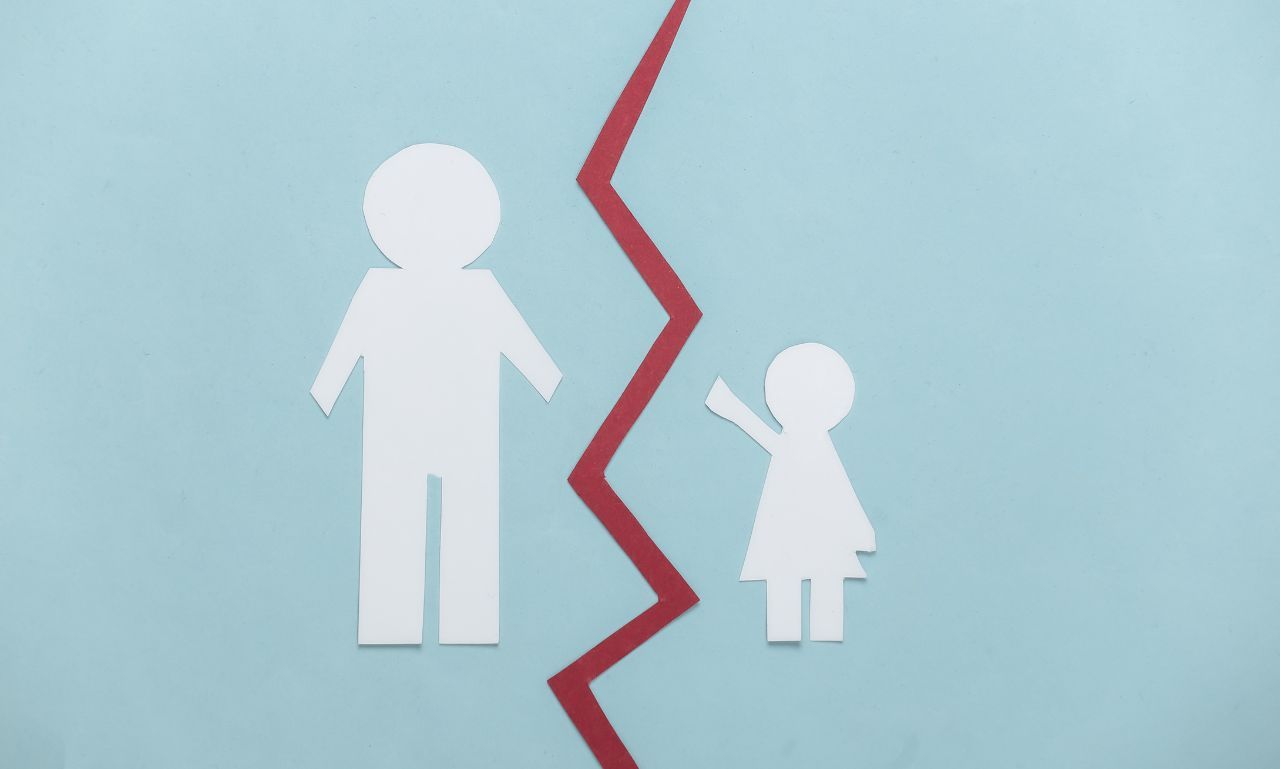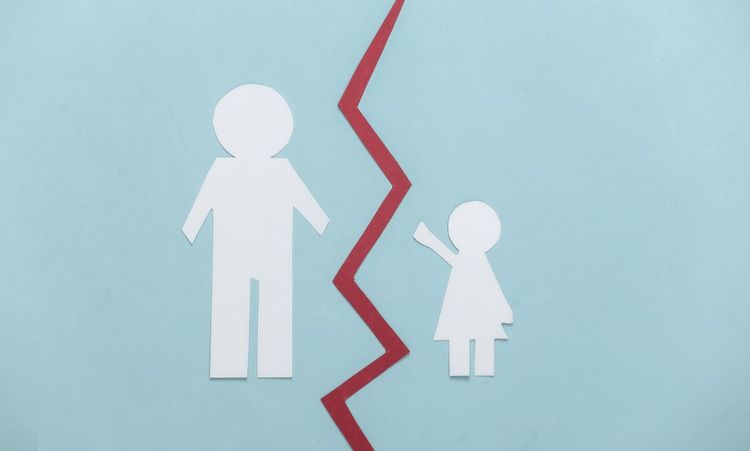When you miss a critical court date regarding your child's custody, a decision can be made without your input. This is what happens after a default judgment child custody ruling is issued: it determines custody based solely on one parent's information. Missing a court hearing or failing to respond to child custody papers can result in a significant and often irreversible loss of rights, responsibilities, and the bond with your child.
Consequences of Default Judgments in Child Custody
The repercussions of a default judgment in child custody are significant, and understanding them is crucial to safeguarding your parental rights.
Loss of Parenting Rights

- Complete Loss of Custody: If you do not respond to the child custody petition, you risk losing both legal custody and physical custody of your child. This means that you no longer have any say in major decisions concerning your child's health, education, and upbringing.
- Restricted Visitation: A default judgment for child custody can result in severely limited visitation rights. Often, supervised parenting time is granted, with minimal opportunities to engage freely with your child.
- Termination of Parental Rights: In extreme cases, a default judgment can result in the termination of parental rights altogether, leading to a complete severing of the parent-child relationship.
Monetary Penalties
- Child Support Orders: What happens after a default judgment child custody also involves financial responsibilities. Child support orders are often established based on assumed income details without your input, and this can result in an unfavorable financial obligation that may be disproportionate to your income.
- Healthcare Costs: Courts may assign health insurance costs and medical expenses for the child without any negotiation. You could be required to pay a considerable amount toward healthcare costs, even if you have no input into decisions about your child's healthcare.
Impact on Custody Arrangements
- Unfavorable Terms: When a default custody judgment is entered, the responding parent generally receives full or primary custody of children. The absent party in default loses out on negotiating joint custody or any favorable custody outcome.
- Limited Parenting Time: Limited parenting time is often the result of a default judgment. The non-custodial parent may receive only restricted visitation or scheduled contact, negatively affecting the parent-child relationship.
The Process Leading to a Default Judgment
Understanding the steps that lead to a default judgment in child custody cases can help you take the necessary precautions to avoid this outcome.
Failing to Respond to Custody Papers
- Child Custody Papers: Upon being served with child custody papers, you have a limited period—often 30 days in term time—to file an answer to the custody petition.
- Default Process: If you fail to file your response on time, the court may proceed with a default hearing and enter a judgment for child custody without your involvement.
Notifications and Court Procedures
- Proof of Service: Proper service of child custody papers is an essential aspect of ensuring that both parties are informed about custody proceedings. Without proof of service, a default judgment cannot be enforced.
- Notice of Hearing: The court will issue a notice of hearing to both parties involved in custody matters. Failing to respond or appear at the hearing in family law court can result in a default court judgment.
Steps to Take After a Default Judgment
If you've received a default judgment for child custody, there are still actions you can take to regain your rights. It may be challenging, but it is possible to rectify the situation.
Filing a Motion to Vacate
- Motion of Default Judgment: Filing a motion to vacate is often the first step to overturning a default judgment in child custody matters. If you can prove that there was improper service or an unavoidable reason for your absence, the judge on custody might consider vacating the judgment.
- Improper Service: If you never received notice (proof of service) of the child custody hearing, this could be valid grounds for vacating the judgment.
Importance of Understanding Court Rules

- Court Requirements: Each jurisdiction has specific family law rules and requirements that must be followed. Understanding the basic court procedures in your jurisdiction is crucial to navigating the legal process effectively.
- Experienced Family Law Attorneys: Engaging experienced family law attorneys can provide you with the guidance needed to navigate custody proceedings, particularly when dealing with a default custody judgment.
Seeking Temporary Orders in Contested Cases
- Temporary Custody Orders: While attempting to vacate a default custody judgment, you may need to file for temporary custody orders. This can help you regain some level of parental rights and maintain your relationship with your child during the custody battle.
Types of Custody Arrangements
When a default judgment is vacated, it’s essential to understand the different types of custody arrangements you may pursue.
Joint Custody
- Joint Legal Custody: Joint custody allows both parents to make decisions about custody and major aspects of the child’s life, such as education, health care, and extracurricular activities.
- Joint Physical Custody: This option for child custody involves sharing physical custody of the child, ensuring the child spends significant time with both parents. A joint custody law arrangement requires both parties to cooperate effectively for the best interest of the child.
Sole Custody
- Full Rights for One Parent: Sole custody means one parent has both physical custody and legal custody, while the other parent has limited or no involvement in decisions about custody or the child’s upbringing.
- Legal Responsibilities: The parent with sole custody makes all decisions without consulting the other parent, which often happens after a default judgment child custody ruling when one parent is absent.
Differences in Legal Rights and Responsibilities
- Legal Custody vs. Physical Custody: Legal custody refers to the right to make significant decisions about a child's life, while physical custody determines where the child resides. A default custody judgment often results in one parent having both.
Financial Implications
Financial obligations are a significant aspect of what happens after a default judgment child custody ruling. Courts may assign child support and other financial responsibilities based solely on their assessments.
Child Support Considerations
- Child Support Orders: A default judgment often includes a child support order based on the court's estimation of your income. This means that if you’re not present to provide income details or financial disclosure forms, the court might assign an unrealistic amount.
- IV-D Child Support Services: In some cases, the custodial parent may use IV-D Child Support Services to enforce child support payments, leading to income withholding orders that directly impact your financial situation.
Impact on Shared Expenses
- Healthcare Costs: After a default judgment child custody ruling, you may be required to cover healthcare costs, including health insurance costs for the child, even if you had no input about custody arrangements.
- Childcare Costs: Courts may also assign childcare costs to the non-custodial parent without consideration for your financial situation. This can become a significant burden if the default judgment remains in place.
Navigating Legal Complexities
The legal process surrounding default judgments in child custody cases is full of potential issues that require careful navigation.
Importance of Legal Representation

- Family Law Representation: Hiring experienced family law representation is vital when dealing with default judgments in child custody cases. A family lawyer who understands the intricacies of custody decree processes can help improve your chances of a favorable custody outcome.
- Legal Services and Advice: Obtaining proper legal services, including the filing of essential legal forms and motions, is crucial to challenging a default custody decision.
Strategies for Effective Engagement in Custody Proceedings
- Responding on Time: Always respond promptly to custody petitions or any official notice to avoid being in default.
- Avoiding Contested Issues: Whenever possible, avoid escalating custody disputes into highly contested issues. Working toward a settlement agreement can help maintain a healthy relationship for the child's benefit.
- Active Involvement: Ensure that you are actively involved in custody proceedings. Filing motions, attending hearings, and providing complete financial disclosure forms are critical to influencing the custody of children.
Conclusion
What happens after a default judgment child custody decision is made can significantly affect your role as a parent. From the loss of parental rights to enduring financial burdens, the impact is both emotional and practical. However, there are steps you can take to reverse a default judgment, including filing a motion to vacate and seeking temporary custody orders. Engaging an experienced family law attorney can be a game-changer in these situations. Stay proactive, protect your rights, and work toward a favorable outcome for both you and your child.




